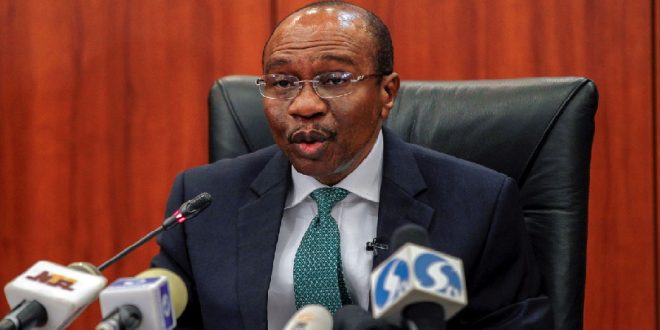28-01-2023
ABUJA: Nigeria’s central bank has launched a domestic card scheme to rival foreign cards like Master-card and Visa, hoping to enhance its drive to make Africa’s biggest economy a cashless society and save the country foreign transaction fees.
 The announcement on Thursday by the Central Bank of Nigeria (CBN) governor, Godwin Emefiele, follows its launch of Africa’s first digital currency, the e-naira, in October 2021.
The announcement on Thursday by the Central Bank of Nigeria (CBN) governor, Godwin Emefiele, follows its launch of Africa’s first digital currency, the e-naira, in October 2021.
Emefiele told a virtual launch of the AfriGo card scheme that although penetration of card payments in Nigeria had grown over the years, many citizens are still excluded.
“The challenges that have limited the inclusion of Nigerians include the high cost of card services as a result of foreign exchange requirements of international card schemes and the fact that existing card products do not address local peculiarities of the Nigerian market,” he said.
Emefiele said Nigeria was joining China, Russia, India and Turkey in launching a domestic card scheme. AfriGo is owned by CBN and Nigerian banks.
The operations of international card service providers like Mastercard and Visa would not end, he said, as AfriGo is meant to provide more options for domestic consumers in a “cost-effective and competitive manner”.
Nigeria, Africa’s biggest economy, has more than 200 million people and the majority still use cash because they live in rural areas where there are no banks.
 To promote “financial inclusion” in remote areas, the central bank announced last week the launch of a cash swap program introducing a redesigned version of the local currency, the naira.
To promote “financial inclusion” in remote areas, the central bank announced last week the launch of a cash swap program introducing a redesigned version of the local currency, the naira.
Earlier, Nigeria’s general election in late February could be cancelled or postponed if insecurity is not tackled, the electoral commission has said.
“If the insecurity is not monitored and dealt with decisively, it could ultimately culminate in the cancellation and/or postponement of elections in sufficient constituencies to hinder declaration of elections results,” said Abdullahi Abdu Zuru, chairman of the Independent National Electoral Commission (INEC)’s Board of Electoral Institute, on Monday.
President Muhammadu Buhari, who steps down after two terms, is leaving office without addressing insecurity that continues for 13 years due to armed groups like Boko Haram in the northeast, increased abduction and killings by bandits and herders in northwestern and central states, as well as separatist tensions in the southeast. (Int’l Monitoring Desk)
 Pressmediaofindia
Pressmediaofindia




